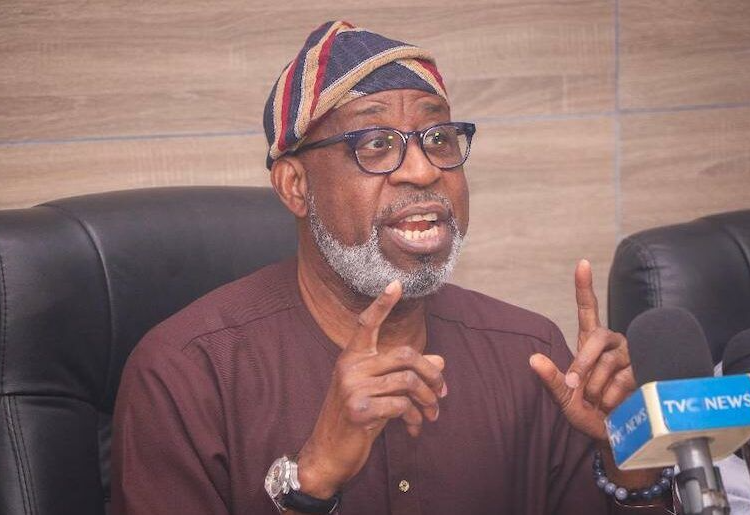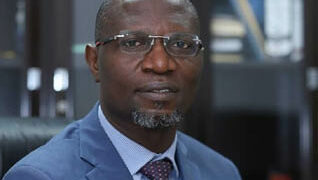Nigeria’s ambition to address its chronic power crisis and industrialisation through local content development and mineral resource management faces critical challenges despite impressive headline figures.
Despite Nigeria’s power and mineral sectors together generating N1.7 trillion in revenue and drawing $800 million in investment in recent years, the country continues to grapple with significant challenges that undermine its industrial growth
Speaking at the 4th African Natural Resources and Energy Investment Summit (AFNIS 2025) in Abuja yesterday, key ministers outlined plans to leverage Nigeria’s rich endowment of over 40 minerals, including strategic lithium and rare earth elements vital for the global energy transition.
Amid soaring electricity demand from a population exceeding 200 million, the federal government has increased market revenues from N1 trillion in 2023 to N1.7 trillion in 2024—a 70 per cent surge buoyed partly by tariff hikes.
However, this does not yet translate into reliable power supply or meaningful economic empowerment for Nigerians as power generation continues to hover around 5,000 megawatts.
While mining investments reached $800 million in 2024, government revenue from minerals increased sixfold to N38 billion, signaling progress.
Yet, local processing and value addition remain inadequate, continuing Africa’s age-old role as a raw material exporter instead of an industrial powerhouse.
The minister of Power, Chief Adebayo Adelabu, reaffirmed that the Electricity Act of 2023 enabled 11 states to regulate their power markets, unlocking competition and investment through decentralisation and digitisation.
Projects like the Energising Education Programme (EEP), adding 100MW of clean energy mainly across federal institutions, and the DARES decentralised electrification initiative aiming to reach 17.5 million people highlight efforts at innovation.
He disclosed that grants totaling $5.91 million support 23 mini-grid projects. However, these numbers are overshadowed by persistent outages and underinvestment in grid infrastructure.
According to him, with Nigeria’s population exceeding 200 million, electricity demand is rising.
“Meeting this demand requires a clear regulatory framework, sustained investment, and local participation across the value chain.
He maintained that the current administration is strengthening domestic capabilities to reduce import dependence and embed local skills and technology.
Complementing the energy push, the minister of Solid Minerals Dele Alake stressed the imperative to shift from exporting unrefined minerals toward industrialisation to avoid losing jobs and economic sovereignty.
He said Nigeria had received over 10,000 mining applications just in early 2025 and launched major industrial projects including a $100 million lithium battery plant creating 4,000 jobs.
Delivering the keynote address AFNIS 2025, Alake stressed that Africa could no longer afford to remain a mere supplier of raw materials.
“Nigeria is home to over 40 types of minerals, including gold, lithium, tin, coal, and rare earth elements. A few of these resources are central to the global energy transition, yet they often remain unprocessed on our shores. This is the paradox we must confront. Africa has been a supplier of raw materials for too long, so we’ve forfeited jobs, industrial growth, and absolute economic sovereignty. That must end. The actual value of our minerals lies not in the dust and rock, but in the refined products, batteries, alloys, steel, and technologies that emerge when we process them ourselves.
“Our campaign for value addition began with a renewed consciousness to preserve and maximise our mineral wealth, thereby gaining more market value and translating to a better life for our people.”
The three-day summit, attended by leaders, investors, and experts across mining, energy, and finance sectors, is focused on leveraging Africa’s wealth to drive industrial growth in line with the African Union’s Agenda 2063.
Alake highlighted Africa’s growing energy demand, projecting electricity generation to hit 866.8 billion kWh by 2029.
He remarked that although much of the continent still grappled with unequal energy access, significant strides were being made.
According to him, Nigeria’s Presidential Compressed Natural Gas Initiative (PCNGI) led to the conversion of over 2,500 vehicles in 2024, raising the national total to 50,000 and attracting $400 million in investment.
Arguing for Africa’s right to pursue its industrialisation drive even while pursuing low-emission energy solutions, the minister said:
“Our energy transition must not come at the cost of industrialisation, food security, or inclusive growth. For Nigeria and Africa as a whole, this means powering farms and factories, not shutting them down. It means creating new industries, not dismantling the ones we have,” he said.
Alake further noted that Nigeria’s National Energy Transition Plan balances emissions cuts with job creation, rural electrification, and economic inclusion.
Furthermore, interconnected power grids, such as the Nigeria–Benin and Nigeria–Cameroon links, are already enhancing regional energy security.
On the mining front, Alake highlighted sweeping reforms in Nigeria to boost domestic processing. He stated that all mining licences now mandate local value addition under new policies. This approach, he said, attracted over $800 million in mining investments in 2024 alone, while government revenue from the sector surged six-fold to ₦38 billion.
Some of the key projects include a $100 million lithium battery plant in Nasarawa, which will create 4,000 jobs; a $600 million lithium plant near the Kaduna-Niger border; a $400 million rare earth minerals facility; and over 10,000 mining license applications in Q1 2025 alone.
To formalise artisanal mining, over 250 cooperatives have been registered, connecting tens of thousands of miners to credit, training, and markets.
Alake also announced that Nigeria would adopt the African Mineral and Energy Resources Classification and Management System (AMREC) and the Pan-African Resources Reporting Code (PARC), which would provide transparency and investor confidence continent-wide.
The Minister called for African ownership of their mineral resources.
“We seek investment, not charity. Africa must invest in Africa,” he said.
He urged a unified front to build green industrial zones, integrate value chains, and scale up funding through initiatives like the Africans for Africa Fund, adding that these and other such initiatives would help turn Africa’s natural wealth into engines of transformation and prosperity.





